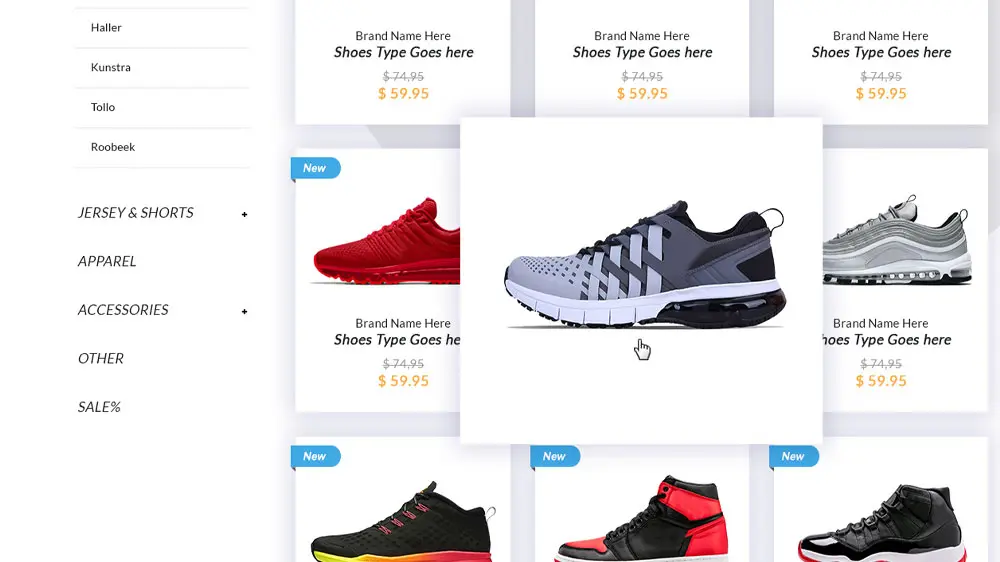NextWealth / Services / Structured and Semi-Structured Data / Product Tagging
Product tagging
For every eCommerce business, it is crucial to make a niche for its products. However, it is usually challenging to do so by simply adding product images and descriptions. Businesses should think a little out of the box to ensure they can popularize the products and create an identifier to ensure one can easily see the products just by entering a couple of words.
This is where eCommerce catalog management services come into play. NextWealth has a strong team of individuals who understand exactly what product tagging means and its importance for every eCommerce business. NextWealth has dealt with hundreds of clients and have completed over 500 projects based on product tagging.
Product matching

Price Benchmarking
With product data matching services, it will become easier for businesses to extract the prices of similar products as proposed by the competitors. This will help understand the stipulated market price and the difference between the competitor’s price and the one being set for any product in particular.
NextWealth offers price benchmarking services where it uses product-matching AI-based tools to understand and analyze the prices to ensure the clients can generate more value through the same.

Range Rationalization
NextWealth offers a range of rationalization services to eCommerce clients. This is crucial for retailers since they usually have to deal with more products. For example, a supermarket store that offers a wide range of products. The more the range, the more difficult it is to maintain the product tags. This is why rationalization of the product range is important. This also helps in increased visibility and sales.

General Competitor Intelligence
For efficient implementation of the product tags in the eCommerce data entry, competitive intelligence has to be implemented. It is a process where analytical models based on business intelligence, big data, and machine learning are used to understand the performance of the competitor’s brand and products. Analytical reports are used to find the content gap in the product and improvise the marketing and eCommerce product tagging operations for bridging the gap.

Recommendation Engine
NextWealth also works on building a strong recommendation engine that is highly dependent on eCommerce product tagging. The building of recommendation engine involves collecting datasets from users’ past actions and recommend a few products by analyzing product tags. For instance, if someone wants a cotton shirt and has searched for the same in the last five visits, the recommendation engine will pick the product tag of “cotton shirt” and recommend some of the best-selling products in the concerned category.
Applications of eCommerce Catalog Management
Product catalog management is the process through which all the product details and other information types can be easily managed and updated on time. This helps keep the catalog as relevant as possible with the most accurate datasets.

Catalog management helps in improving the user experience with the eCommerce business. It is one of the most important goals every business needs to achieve to improve brand reputation, reach, visibility and customer retention.

Also, catalog management can empower omnichannel businesses. This helps to manage all the channels involved with the business and delight the customers with the most accurate product catalog and smartly curated content.

We can easily work on customer retention with the help of proper eCommerce catalog management. Since they can know everything about the products from the catalog, they will stick to the business’s side without any further restrictions.

Catalog management can enhance the flow of communication from the business end to the customers. This helps in maintaining the trust businesses have with the target audience.
Case Studies




Get your Ground Truth Data here
Tell us more about your data challenges
FAQs
What are the best tools/methods to manage your product catalog for eCommerce?
Two methods help to improve product matching for the eCommerce catalog. First is to categorize the products such as Fashion, Electronics etc. Next is to classify the products based on size, color, design, materials, etc
How is artificial intelligence transforming eCommerce?
Artificial intelligence is crucial in searching for products from multiple manufacturers, retailers, and brands based on product tags. It also helps businesses understand the past actions of the customers and recommend products based on the same.
